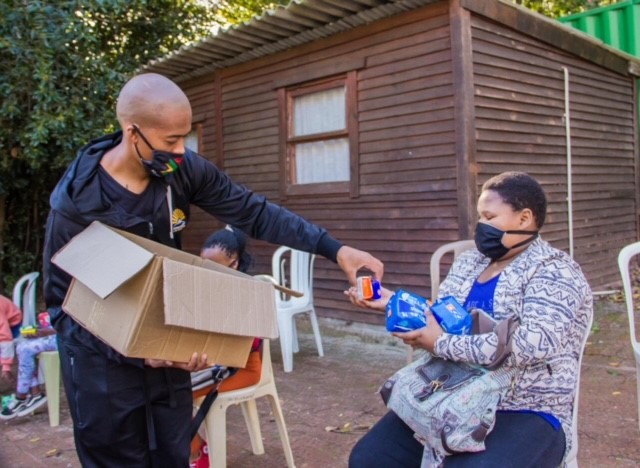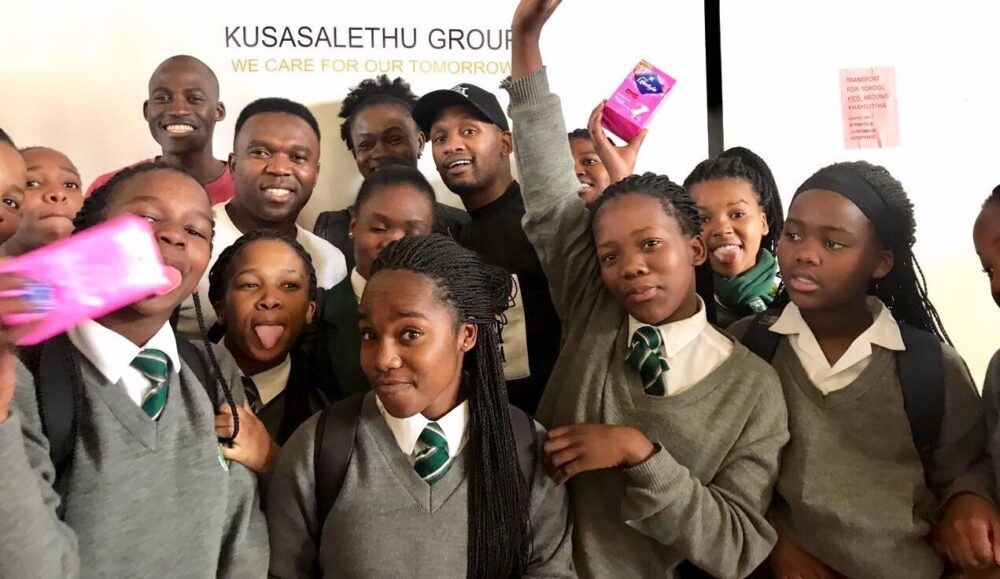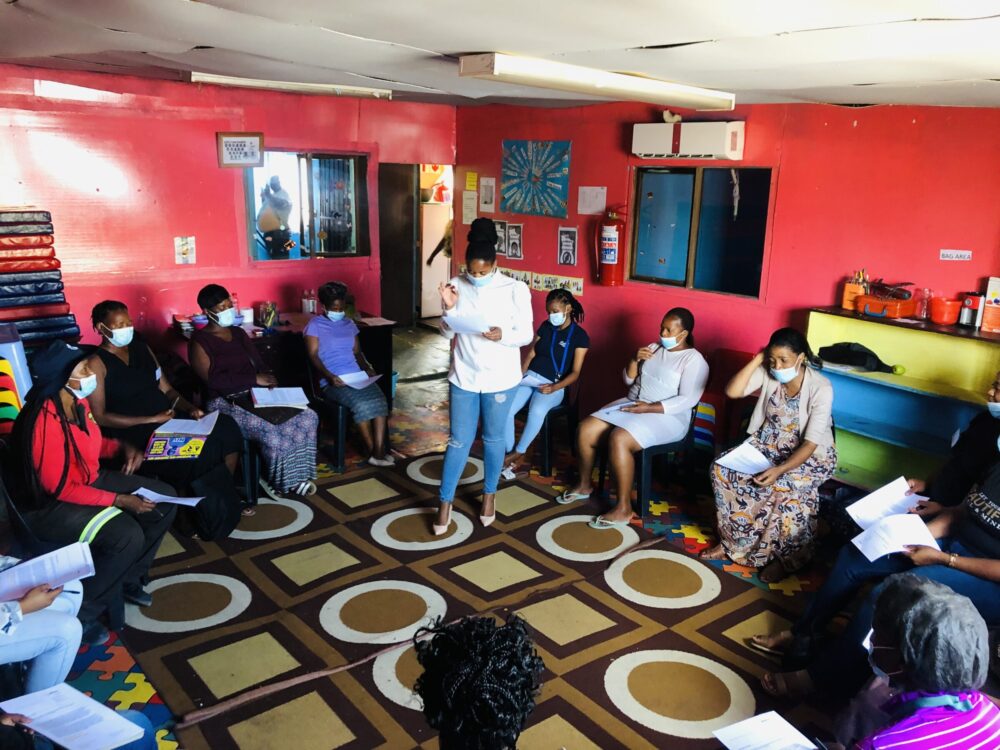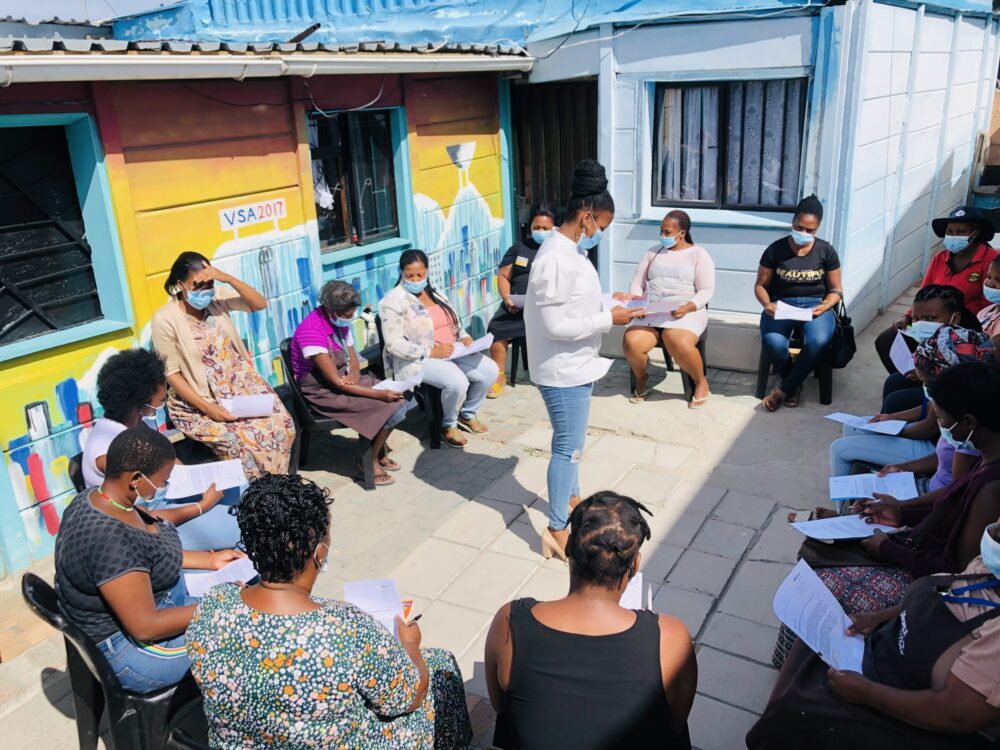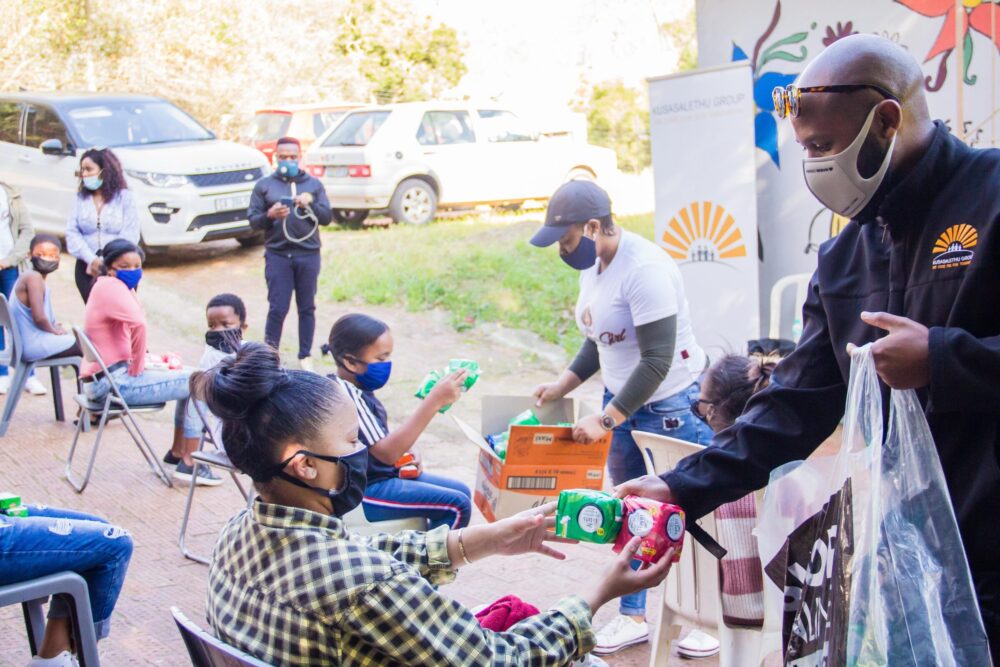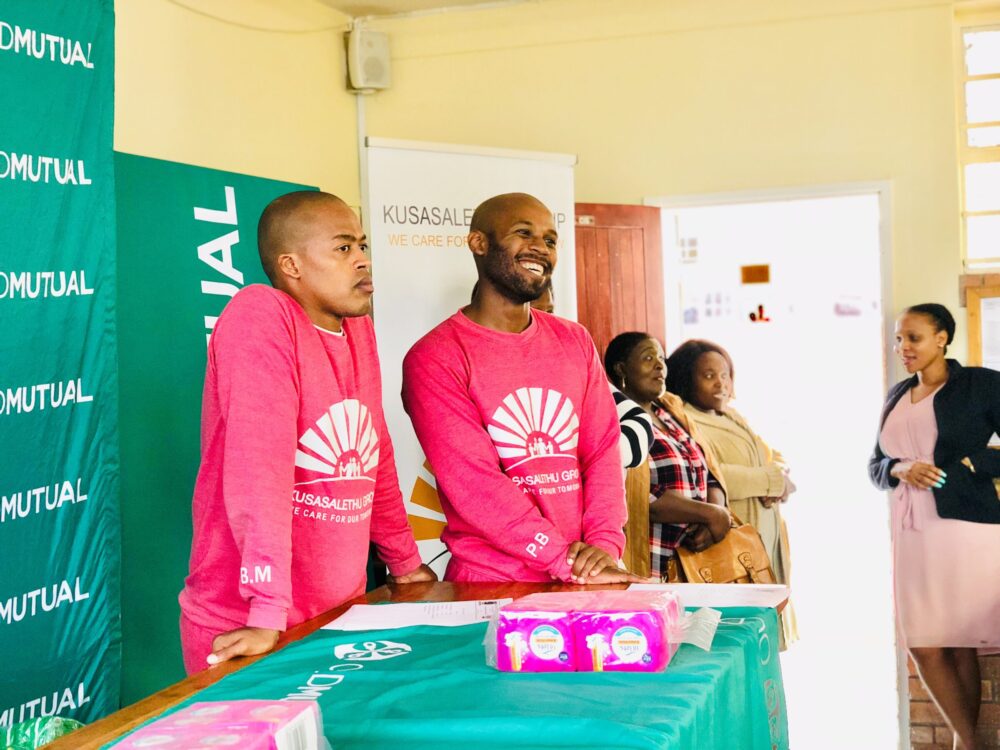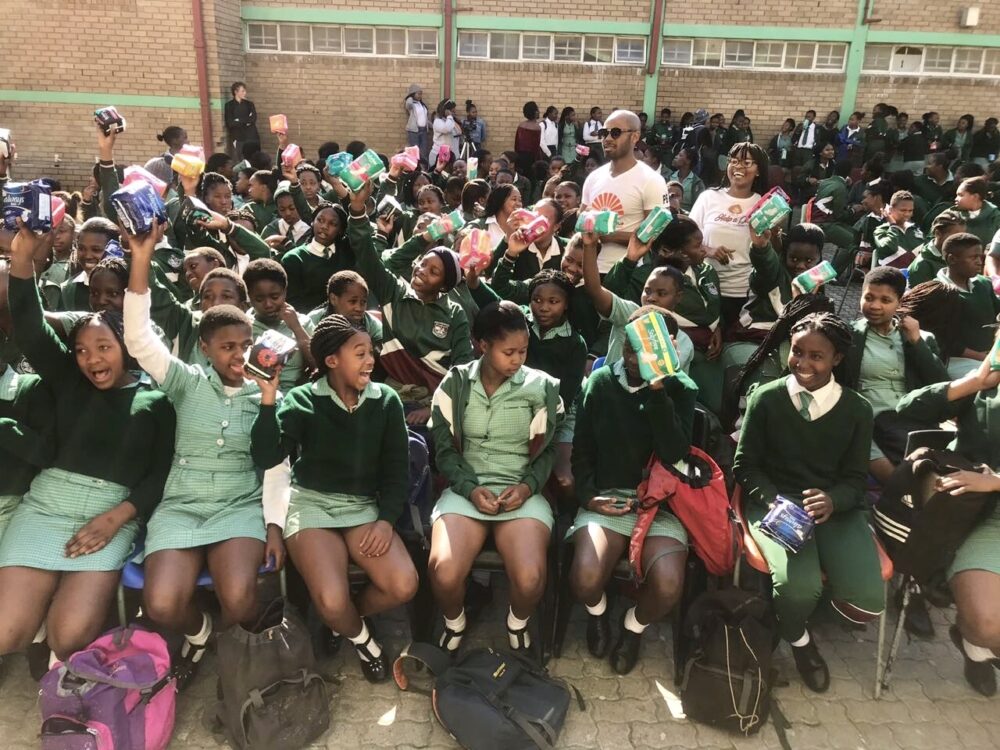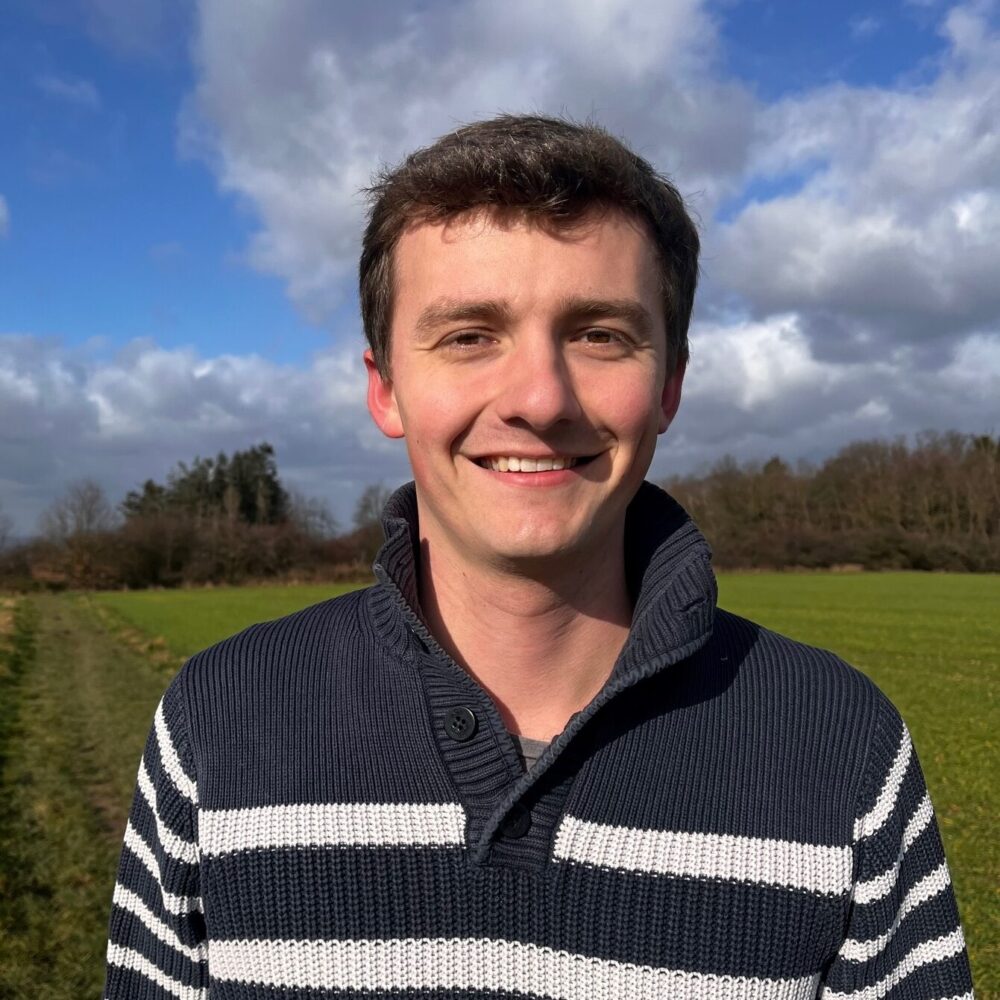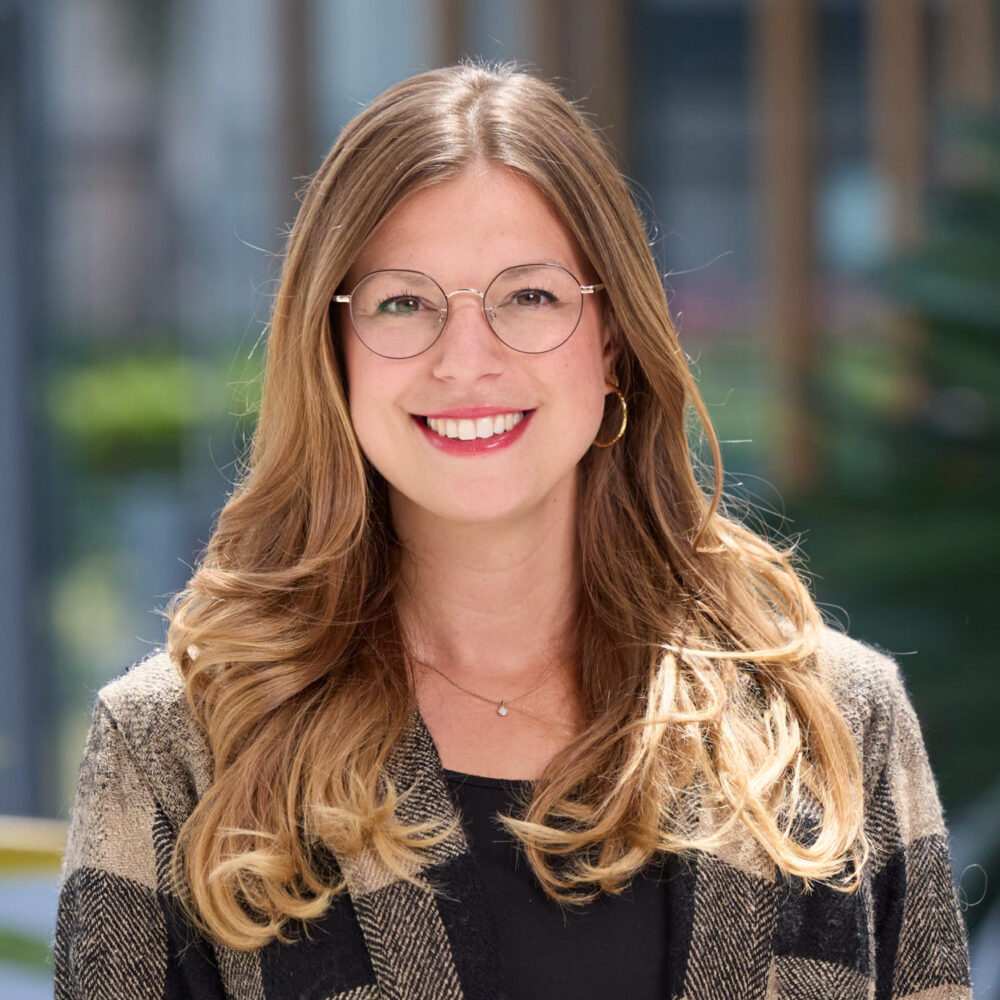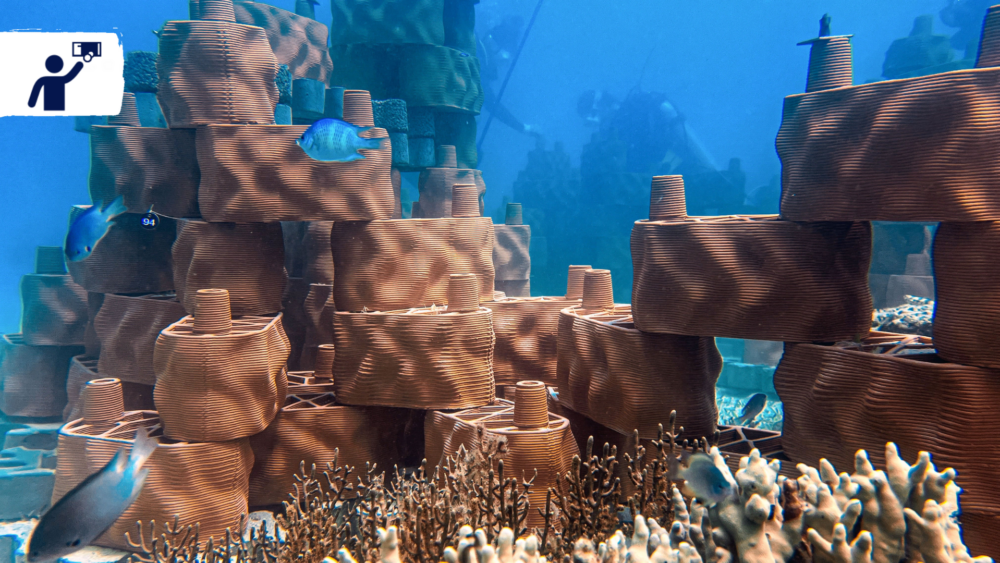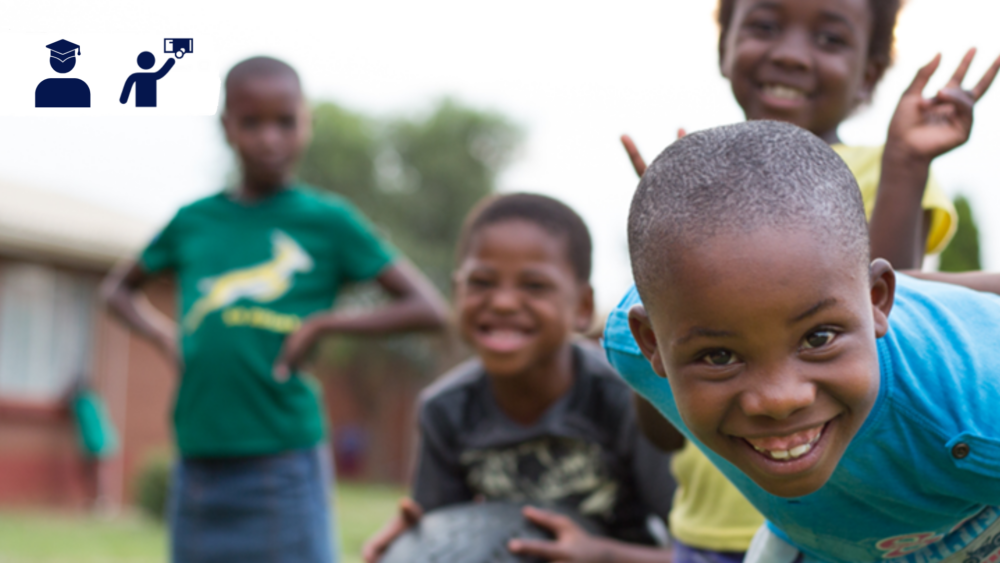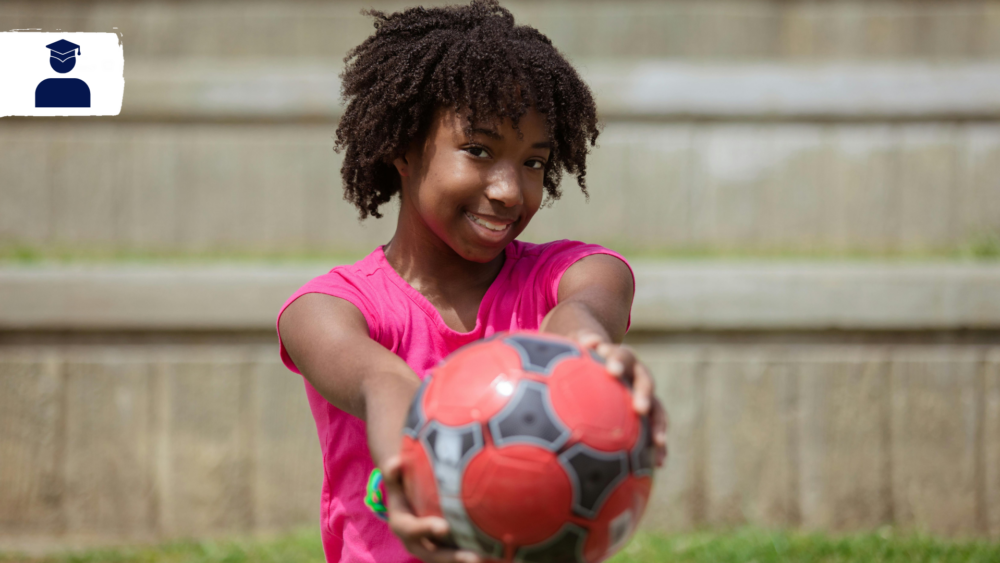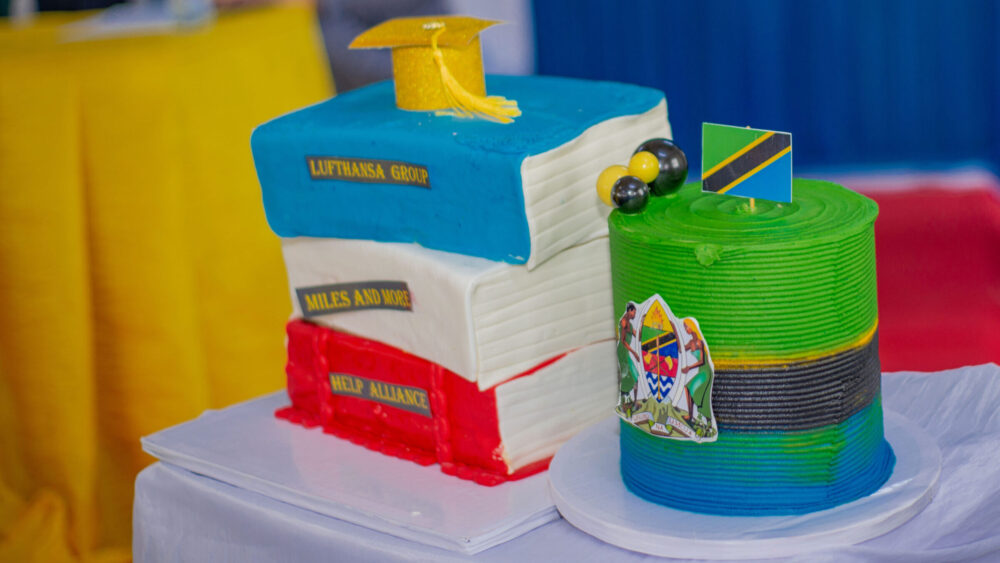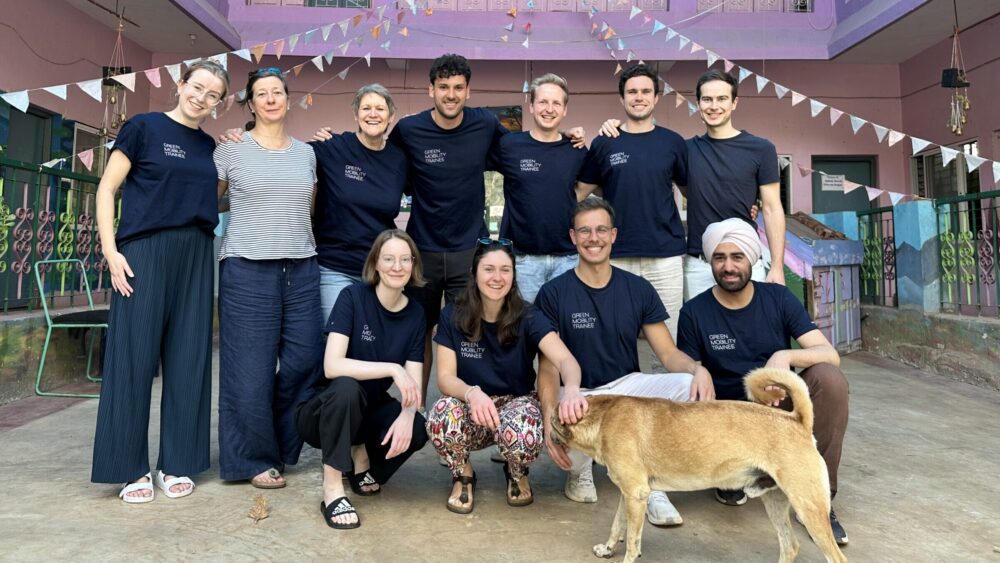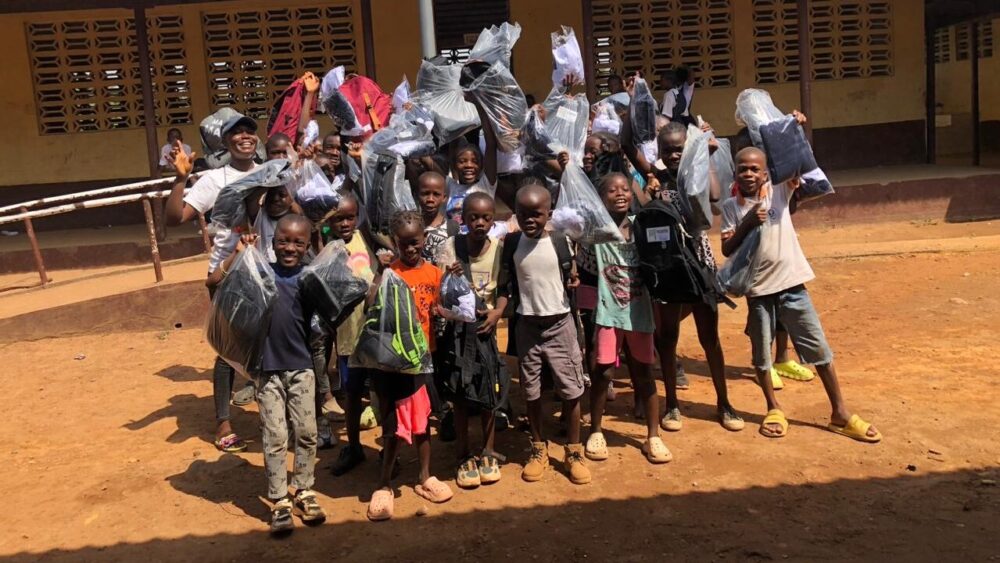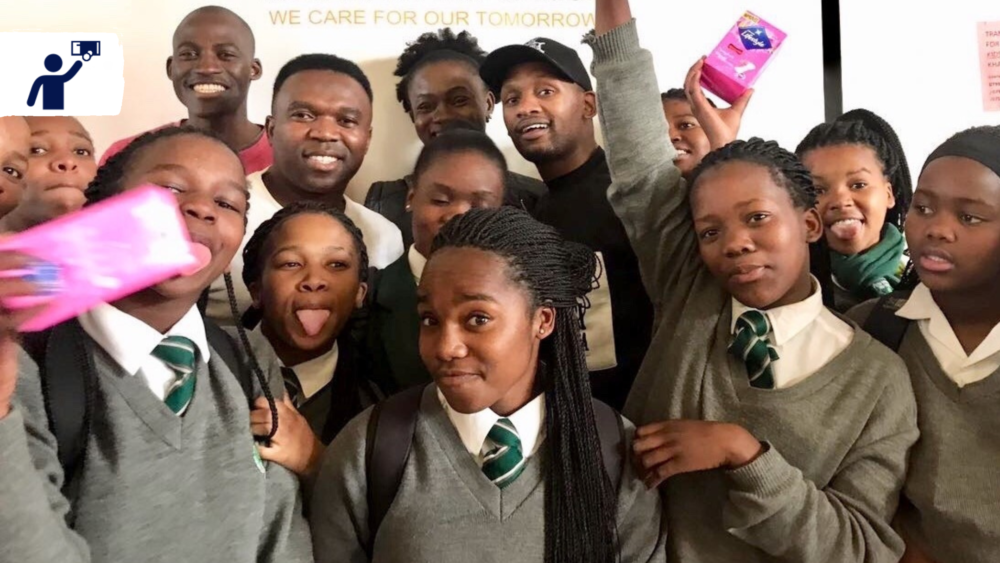
Sustainable sanitary pads, Cape Town
The “WEpads” project aims to give more women and girls access to feminine hygiene products, offering self-produced menstrual pads that cost a maximum of ZAR 1 (EUR 0.06). The production and sale of the pads creates jobs for previously unemployed women from the township.
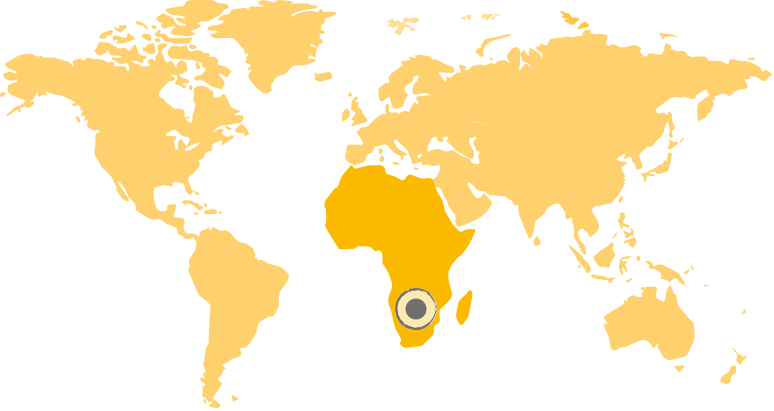
Project Background
Period poverty describes the disadvantages induced by menstruation for women and girls without access to hygienic and affordable period products. According to the UN, this leads to approximately 63 million students worldwide missing part of their schooling. In South Africa, the number is as high as 1/3 of students experiencing a significant educational disadvantage during their period. To find a solution to this serious problem, German and South African students joined forces in 2018 and launched the “WEpads” project to produce and distribute affordable and sustainable sanitary pads. What makes the project special is that it is produced by women for women and girls, providing both a solution to period poverty and an income-generating measure in production and distribution for women without an educational background.
Target Group
Based on the last official census in 2011, there are officially 391,749 people living in Khayelitsha. However, since there are many unregistered residents in the township, estimates range from 1.5 to 2.4 million people. Of these, about 51 % are women and 62.70 % are between the ages of 15 and 45. This target group is characterized by a low level of education and income. Overall, around 1/3 of schoolgirls in South Africa miss school during their period because they cannot afford feminine hygiene products and there is too little education about menstruation. Another target group are the future female employees of WEpads. To this end, job opportunities are to be offered to previously unemployed women in particular.
Project Goals
Through the support of help alliance, the girls and women receive business training in which they learn how to successfully distribute the sanitary pads produced in their community. The second part of the training for these saleswomen deals explicitly with our product and the problem of period poverty. The aim of this training block is to prepare the distributors for sales and to make them promoters of our project and the fight against period poverty. In addition, help alliance promotes menstruation and cycle education in schools and youth facilities in Khayelitsha. On the one hand, these events are intended to de-taboo the topic of menstruation and, in particular, to focus on menstrual hygiene. On the other hand, these events should also help to make the local population aware of our WEpads project and present our fair, ecologically sustainable and affordable sanitary pads as a possible period solution.
What are you supporting
With your donation, you will help to de-taboo menstrual hygiene in South Africa and at the same time create jobs for women with this issue.

